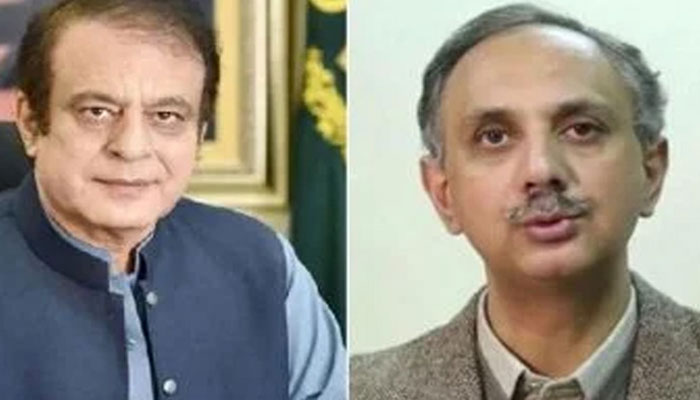PHC halts appointment of new opposition leaders in NA, Senate
PESHAWAR ( WEB NEWS )
The Peshawar High Court (PHC) on Tuesday halted the appointment of new opposition leaders in the National Assembly and Senate and stopped further action against PTI leaders Omar Ayub and Shibli Faraz.
A two-member bench comprising Justice Arshad Ali and Justice Khurshid Iqbal heard the petition filed against the Election Commission’s decision to de-notify Omar Ayub and Shibli Faraz.
Barrister Gohar argued that two petitions had been filed against the Speaker of the National Assembly and the Chairman of the Senate, adding that on August 5, the seat of the opposition leader in the National Assembly was declared vacant. The court inquired whether the Peshawar High Court had jurisdiction to hear the case.
Barrister Gohar informed the court that the petitioner was disqualified under Article 63(1)(h), terming the Election Commission’s move to disqualify members as unlawful and ineffective. He said that under Rule 67(2) of the Rules of Business, the opposition leader is elected, and that after 60 days, the Election Commission cannot disqualify anyone.
He further stated that under Section 213, the Election Commission can only exercise administrative authority, and that disqualification requires a reference from the Speaker. He pointed out that there are 14 separate grounds on which a member can be disqualified.
Continuing his arguments, Barrister Gohar suggested that if deemed appropriate, the court could refer the case to a larger bench, saying the Election Commission was making a mistake.
Referring to the May 9 incident, he said that 88 cases were registered in the Anti-Terrorism Court (ATC) and that MNA Abdul Latif was sentenced to 10 years. Action against Omar Ayub and other leaders was based on Abdul Latif’s case, which he claimed was an error by the Election Commission.
He further argued that the Election Commission had misguided itself and misinterpreted Article 63(2), adding that the reference to the Syed Yousuf Raza Gilani case was irrelevant as the two matters were entirely different. He requested the court to stop the Election Commission from taking any further action.
The high court issued notices to the Election Commission and other parties, seeking their responses by August 15.

